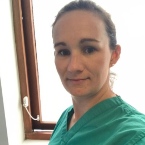The formation of a Maternal Medicine Network aims to deliver co-ordinated and specialist care for women regionally with complex medical conditions. There are 17 Maternal Medicine Networks in England. Each network has at least one 'Centre', with the other hospitals being referred to as 'Spokes'. Each centre has specialist obstetricians, anaesthetists, physicians and midwives who have specific training in caring for women with medical conditions in pregnancy.
Any healthcare professional can refer into a Maternal Medicine Network. Nurses are well placed to be able to identify women with pre-existing medical disorders or pregnancy-related medical conditions who may benefit from the support of a Maternal Medicine Network. Examples of conditions include: cardiac conditions, respiratory conditions, haematological conditions and women with cancer. Care under the network can range from requesting pre-pregnancy counselling to providing joint care during pregnancy between specialist nurses and specialist midwives.
Maternal Medicine Networks are responsible for ensuring that all women in the network's footprint with significant medical problems receive timely specialist and joined-up care and advice before, during and after pregnancy around things like medication use.
When a woman is referred to a Maternal Medicine centre there are 3 options available; 1) the woman’s medical condition and pregnancy can be sufficiently cared for at the spoke hospital, 2) care is split between the spoke hospital and the centre, and 3) care is taken over completely by the centre.
Each network should ensure that general practitioners and emergency departments are aware of key 'red flag' symptoms in pregnancy and have measures in place to access the centres to ensure that pregnant women can be appropriately accessed by a specialist physician or obstetrician.


 Share on LinkedIn
Share on LinkedIn




